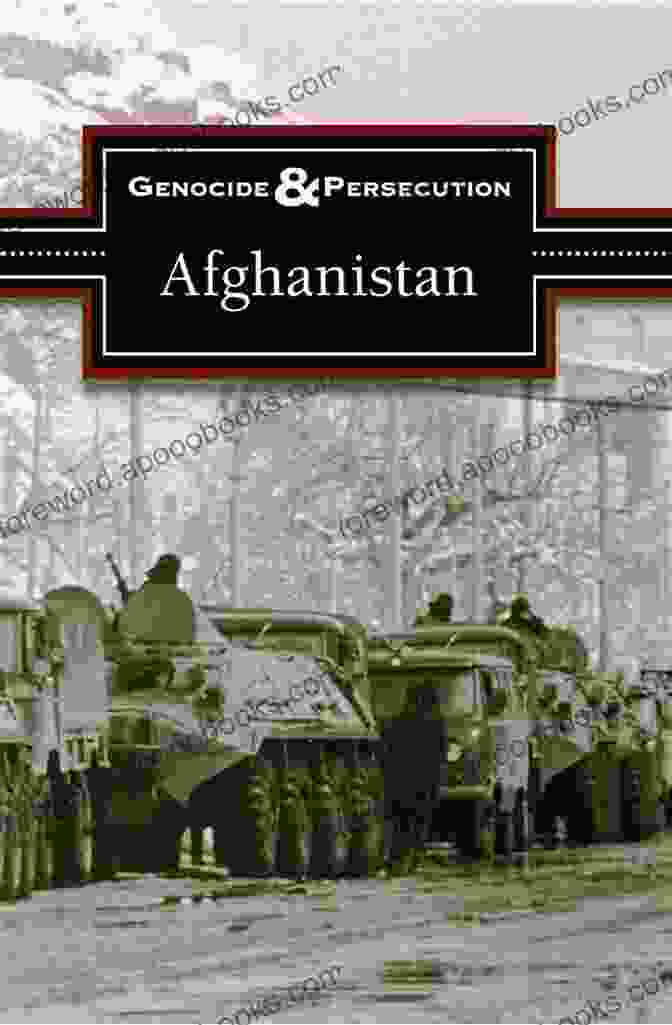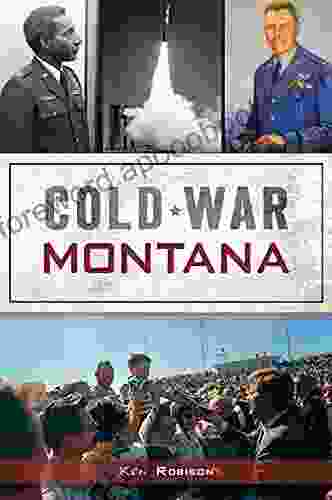Afghanistan: A Tapestry of Genocide and Persecution

By David Nelson

In the wake of the United States' withdrawal from Afghanistan in 2021, the country has been plunged into a humanitarian crisis. The Taliban, a fundamentalist Islamic group, has seized control of the country and imposed a harsh regime that has led to the persecution of minorities, the suppression of women's rights, and the deaths of thousands of civilians.
4.6 out of 5
| Language | : | English |
| File size | : | 11942 KB |
| Screen Reader | : | Supported |
| Print length | : | 240 pages |
David Nelson's new book, "Afghanistan Genocide and Persecution," provides a comprehensive overview of the history of violence and oppression in Afghanistan. The book traces the country's history from the Soviet invasion in 1979 to the present day, and it documents the human rights abuses that have been committed by all sides in the conflict.
Nelson argues that the current crisis in Afghanistan is the result of a long history of genocide and persecution. He points to the systematic killing of the Hazara people by the Taliban in the 1990s, the persecution of the Shia minority by the Sunni majority, and the widespread violence against women.
Nelson's book is a powerful indictment of the international community's failure to protect the people of Afghanistan. He argues that the United States and its allies have been complicit in the suffering of the Afghan people, and he calls for a renewed commitment to human rights and justice in Afghanistan.
A History of Violence
Afghanistan has a long and tragic history of violence and persecution. The country has been invaded and occupied by foreign powers for centuries, and its people have suffered from war, famine, and disease. In recent decades, Afghanistan has been plagued by civil war, terrorism, and the Taliban's brutal regime.
The Soviet invasion of Afghanistan in 1979 marked a turning point in the country's history. The Soviet Union's brutal occupation of Afghanistan led to the deaths of over a million people and the displacement of millions more. The Soviet withdrawal in 1989 left Afghanistan in ruins, and the country soon descended into civil war.
The Taliban emerged in the early 1990s and quickly seized control of most of Afghanistan. The Taliban imposed a harsh regime that violated the basic human rights of all Afghans, especially women and girls. The Taliban's rule was marked by public executions, amputations, and the suppression of dissent.
The United States invaded Afghanistan in 2001 in response to the September 11th attacks. The US-led coalition quickly defeated the Taliban and established a new government in Kabul. However, the Taliban continued to wage an insurgency against the US-backed government, and the war in Afghanistan dragged on for years.
In 2021, the United States withdrew from Afghanistan, and the Taliban quickly regained control of the country. The Taliban's return to power has led to a humanitarian crisis, as millions of Afghans face starvation, disease, and persecution.
Genocide and Persecution
Nelson argues that the current crisis in Afghanistan is the result of a long history of genocide and persecution. He points to the systematic killing of the Hazara people by the Taliban in the 1990s, the persecution of the Shia minority by the Sunni majority, and the widespread violence against women.
The Hazara people are a Shia Muslim minority group that has been persecuted in Afghanistan for centuries. In the 1990s, the Taliban systematically killed thousands of Hazaras, and many more were forced to flee their homes.
The Shia minority in Afghanistan has also been persecuted by the Sunni majority. The Shia have been subjected to discrimination, violence, and even death threats. In recent years, there have been several attacks on Shia mosques and religious gatherings.
Women in Afghanistan have also been the victims of widespread violence and persecution. The Taliban has imposed a strict dress code on women, and women are not allowed to work or go to school without a male guardian. Women who are caught violating the Taliban's rules are often subjected to beatings, imprisonment, or even death.
Nelson's book provides a detailed account of the genocide and persecution that has been committed in Afghanistan. He argues that these crimes are the result of a long history of hatred and intolerance in the country.
A Call for Justice
Nelson's book is a powerful indictment of the international community's failure to protect the people of Afghanistan. He argues that the United States and its allies have been complicit in the suffering of the Afghan people, and he calls for a renewed commitment to human rights and justice in Afghanistan.
Nelson calls for the following actions to be taken:
- The international community must provide humanitarian aid to the people of Afghanistan.
- The Taliban must be held accountable for its crimes against humanity.
- The United States and its allies must support the Afghan people in their struggle for freedom and democracy.
Nelson's book is a timely and important contribution to the discussion of Afghanistan. He provides a comprehensive overview of the history of violence and oppression in the country, and he argues that the current crisis is the result of a long history of genocide and persecution. Nelson's book is a call for justice for the people of Afghanistan, and it is a must-read for anyone who wants to understand the current crisis in the country.
4.6 out of 5
| Language | : | English |
| File size | : | 11942 KB |
| Screen Reader | : | Supported |
| Print length | : | 240 pages |
Do you want to contribute by writing guest posts on this blog?
Please contact us and send us a resume of previous articles that you have written.
 Book
Book Novel
Novel Page
Page Chapter
Chapter Text
Text Story
Story Genre
Genre Reader
Reader Library
Library Paperback
Paperback E-book
E-book Magazine
Magazine Newspaper
Newspaper Paragraph
Paragraph Sentence
Sentence Bookmark
Bookmark Shelf
Shelf Glossary
Glossary Bibliography
Bibliography Foreword
Foreword Preface
Preface Synopsis
Synopsis Annotation
Annotation Footnote
Footnote Manuscript
Manuscript Scroll
Scroll Codex
Codex Tome
Tome Bestseller
Bestseller Classics
Classics Library card
Library card Narrative
Narrative Biography
Biography Autobiography
Autobiography Memoir
Memoir Reference
Reference Encyclopedia
Encyclopedia David Brian Robertson
David Brian Robertson Suzanne Simonetti
Suzanne Simonetti David Lionheart
David Lionheart Theodore Roethke
Theodore Roethke Paola Sztajn
Paola Sztajn W Timothy Coombs
W Timothy Coombs David H Dejong
David H Dejong Teresa A Meade
Teresa A Meade David Fiorazo
David Fiorazo David Mcneill
David Mcneill John Anthony Maltese
John Anthony Maltese Mark Bergin
Mark Bergin Nell Nockles
Nell Nockles Simon Holmes
Simon Holmes Drac Von Stoller
Drac Von Stoller David E Newton
David E Newton Roger Jewett
Roger Jewett Reynold Jay
Reynold Jay George Kitchin
George Kitchin James Frey
James Frey
Light bulbAdvertise smarter! Our strategic ad space ensures maximum exposure. Reserve your spot today!

 Herman MelvilleNavigating the Labyrinth of Neurological Diseases: A Guide to Prognosis and...
Herman MelvilleNavigating the Labyrinth of Neurological Diseases: A Guide to Prognosis and...
 Billy PetersonUnveiling the Epic Novel of World War II: A Literary Masterpiece of Courage,...
Billy PetersonUnveiling the Epic Novel of World War II: A Literary Masterpiece of Courage,...
 Cade SimmonsUnveiling the Military's Covert Operations in Cold War Montana: An Excerpt...
Cade SimmonsUnveiling the Military's Covert Operations in Cold War Montana: An Excerpt...
 Christian BarnesThe Highlander's Promise: A Highland Brides Book That Will Capture Your Heart
Christian BarnesThe Highlander's Promise: A Highland Brides Book That Will Capture Your Heart Darren NelsonFollow ·19.7k
Darren NelsonFollow ·19.7k Brady MitchellFollow ·13.7k
Brady MitchellFollow ·13.7k Mitch FosterFollow ·6.1k
Mitch FosterFollow ·6.1k Eddie BellFollow ·13.1k
Eddie BellFollow ·13.1k Carson BlairFollow ·4.1k
Carson BlairFollow ·4.1k Isaiah PowellFollow ·11.3k
Isaiah PowellFollow ·11.3k Ricky BellFollow ·3k
Ricky BellFollow ·3k Everett BellFollow ·11.8k
Everett BellFollow ·11.8k

 Douglas Powell
Douglas PowellEscape into a World of Sweet Love and Second Chances with...
Prepare yourself...

 Garrett Powell
Garrett PowellMaster Badminton: A Comprehensive Guide to the Thrilling...
Are you ready to step into the world of...

 Deacon Bell
Deacon BellTrailer Park Trickster: The Adam Binder Novels
Book 1: The...

 Oscar Bell
Oscar BellLeo: The Very Modern Taoiseach
Leo Varadkar's journey...
4.6 out of 5
| Language | : | English |
| File size | : | 11942 KB |
| Screen Reader | : | Supported |
| Print length | : | 240 pages |








